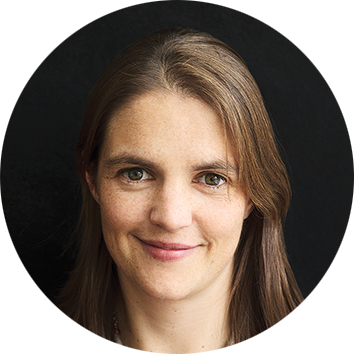
In her work as an epidemiologist, Caroline Buckee thinks a lot about malaria—but the same could have been said when she was six years old. “There’s a story my dad tells about my dinnertime conversation when I was little,” she says. “I often used to say things like, ‘What’s your favorite disease?’ And it turns out my favorite was malaria.”
The obsession never quite waned, because malaria is caused by “a fascinating organism,” says Buckee, now an assistant professor at the Harvard School of Public Health. “It’s really a shape-shifter. It evolves very quickly to anything we throw at it. It’s a clever parasite.” And most disturbing, she says, even though it is treatable and preventable, malaria is still among the biggest infectious-disease killers of children.
In 2006, during a research trip to Kenya, it occurred to her that work her husband, Nathan Eagle (himself an Innovator Under 35 in 2009), was doing with data about cell-phone use might be employed in the service of malaria prevention. What if, Buckee wondered, location data from cell phones were used to intuit a malaria outbreak’s point of origin? Locals might then be warned via text messages to avoid the area or use bed netting. Health officials could know where to concentrate their mosquito-spray efforts.
Indeed, when Buckee pored over data from 15 million Kenyan cell phones, telltale patterns emerged. People who had made calls or sent messages through a certain phone tower were extremely likely to later visit a region near Lake Victoria where malaria wound up erupting in force. The area near that tower was probably the original hot spot—and thus where health officials should focus.
Buckee and her colleagues are still figuring out the best way to use this data (which was one of MIT Technology Review’s 10 Breakthrough Technologies of 2013). But the results so far give her confidence that she’s found a crucial tool for her work in epidemiology. “The ubiquity of cell phones is really changing how we think of diseases,” she says.
—Timothy Maher
